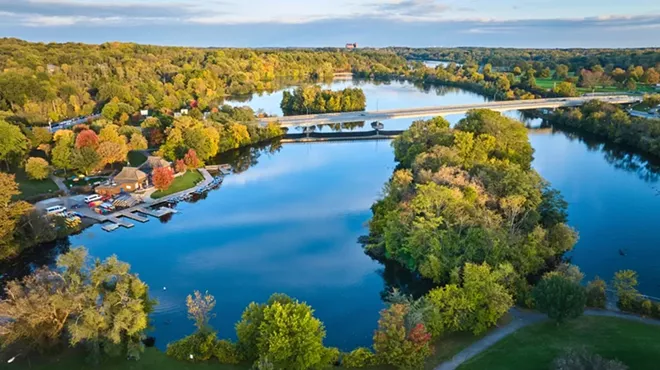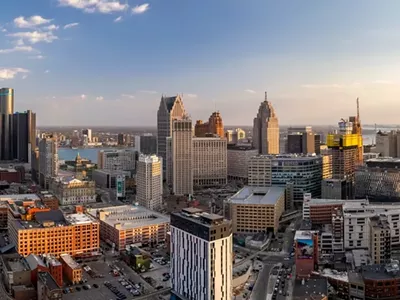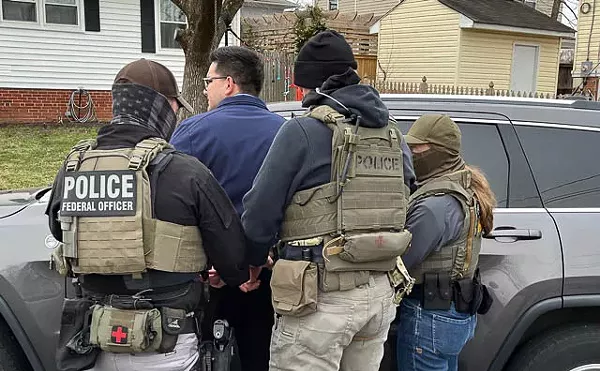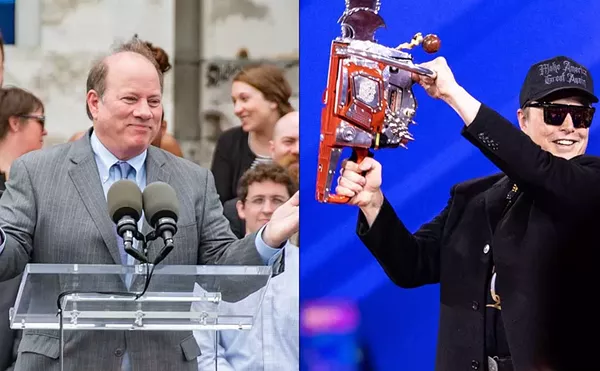‘Transforming blight into beauty’: Detroit reaches 25,000 trees planted in greening effort
The Detroit Tree Equity Partnership has a goal of planting 75,000 trees by 2027

Audio By Carbonatix
[
{
"name": "GPT - Leaderboard - Inline - Content",
"component": "35519556",
"insertPoint": "5th",
"startingPoint": "3",
"requiredCountToDisplay": "3",
"maxInsertions": 100,
"adList": [
{
"adPreset": "LeaderboardInline"
}
]
}
]
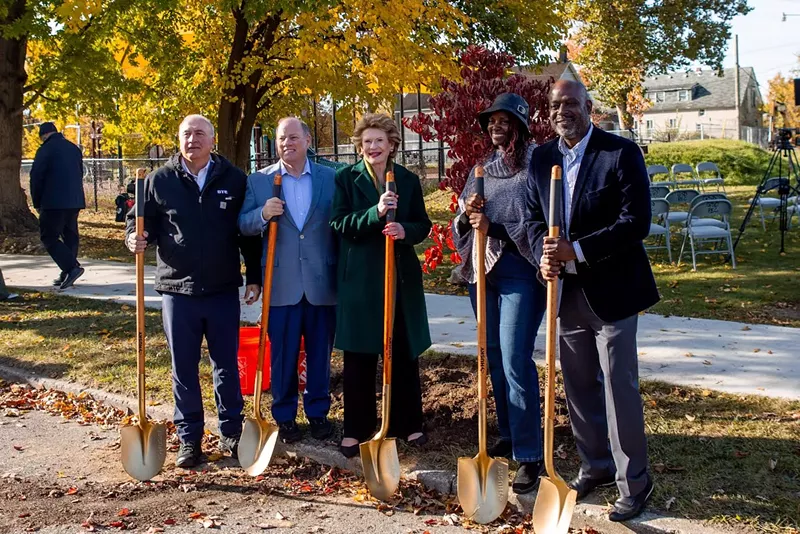
Aiming to bring more green spaces and shade to Detroit neighborhoods, a coalition of local organizations and city leaders celebrated a significant milestone on Monday by planting the 25,000th tree in two years.
The Detroit Tree Equity Partnership highlighted its efforts to restore the city’s urban tree canopy, improve air quality, and create job opportunities for residents during a ceremony in Bailey Park in the McDougall-Hunt neighborhood.
The partnership, which has an ambitious goal of planting 75,000 trees by 2027, is made up of the Greening of Detroit, DTE Energy, and the city of Detroit.
Leaders say the recent milestone underscores a commitment to environmental revitalization and community health through urban forestry.
The ceremony brought together leaders including U.S. Sen. Debbie Stabenow, Mayor Mike Duggan, DTE Chairman Jerry Norcia, Bailey Park Neighborhood Development Corporation Founder Katrina Watkins, and Greening of Detroit President Lionel Bradford, who spoke to the transformative impact of urban forestry both in environmental benefits and community empowerment.
Stabenow, who chairs the Senate Agriculture, Nutrition, and Forestry Committee, highlighted federal support from the Inflation Reduction Act, saying, “I have worked to bring $1.5 billion into urban communities,” adding, “In Michigan, Greening of Detroit is the forestry leader and there are now 11 additional projects that are now being funded.”
The partnership’s reach extends beyond just planting trees, Bradford said.
“Since 2022, our coalition has planted 25,000 trees, trained 348 Detroit residents, and employed 48 graduates as tree artisans,” Bradford said. “As Mayor Duggan says, we are truly transforming blight into beauty in Detroit.”
Duggan said Detroiters are increasingly enthusiastic about tree planting.
“Five or six years ago, if I was talking about trees, people would ask about removing dead ones,” Duggan said. “More than 7.000 dead trees have been removed and now 25,000 new trees are in the ground. Detroit residents are now asking me where they can get the new trees.”
For Norcia, the trees represent a long-term investment in Detroit’s future.
“These 25,000 trees are improving lives by capturing carbon, bettering our climate and cooling temperatures in the heat of the summer,” Norcia said. “The trees we’ve planted today in this park will help cool the children who play here in the future with lots of shade.”
Watkins discussed the impact on historically under-resourced areas like McDougall-Hunt.
“Neighborhoods like McDougall-Hunt have a lack of tree and park equity,” Watkins said. “We are inspiring our residents today by celebrating the planting of the milestone 25,000th tree right here in our neighborhood.”
The Detroit Tree Equity Partnership also emphasizes community collaboration. Detroit Future City, a think tank dedicated to creating a more equitable city, worked closely with Arboretum Detroit and the Bailey Park Neighborhood Development Corporation to create a model for engaging residents in neighborhood-scale forestry planning.
“We know that having a healthy, well-maintained tree canopy improves quality of life for Detroiters, and contributes to climate resiliency, health, and economic equity,” Detroit Future City CEO Anika Goss said. “Detroit Future City’s effort was focused on deeply engaging residents to identify the places where they wanted to see trees planted in their neighborhoods.”

